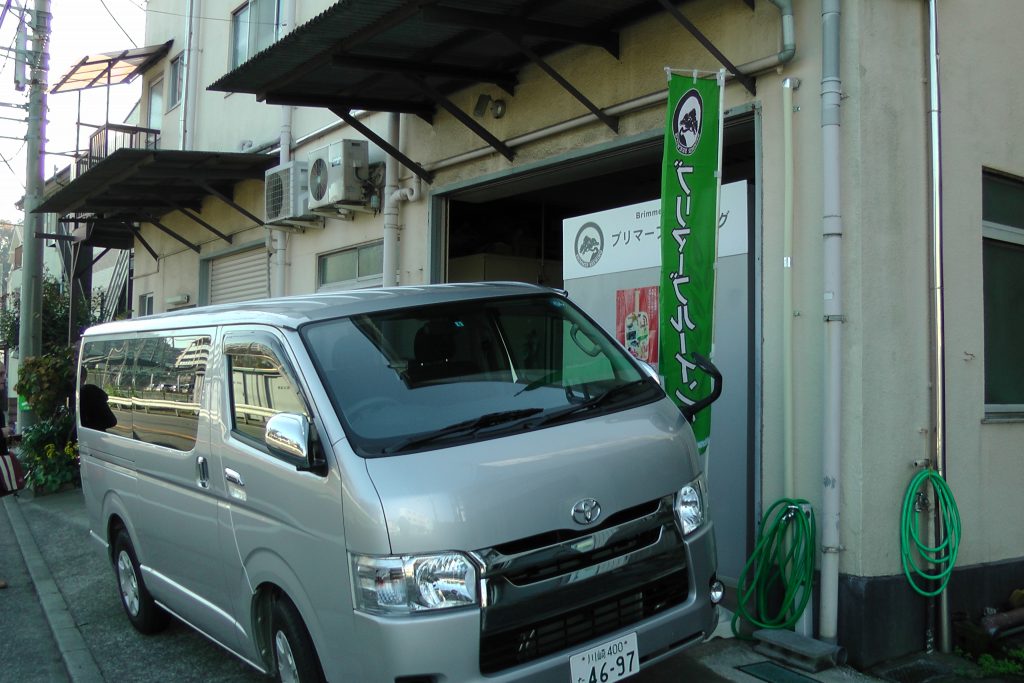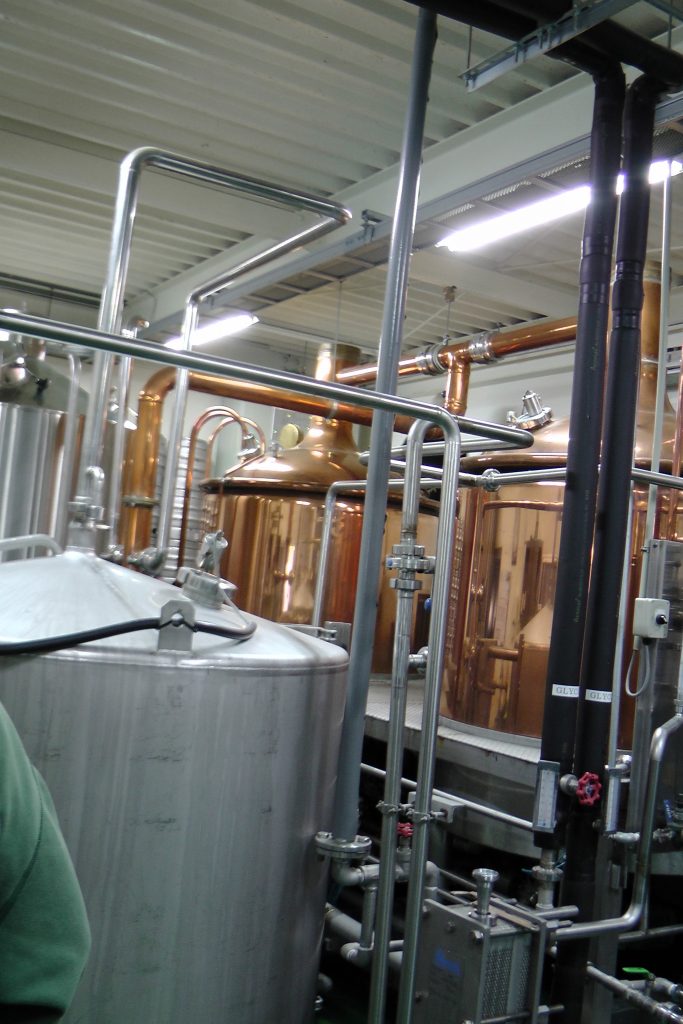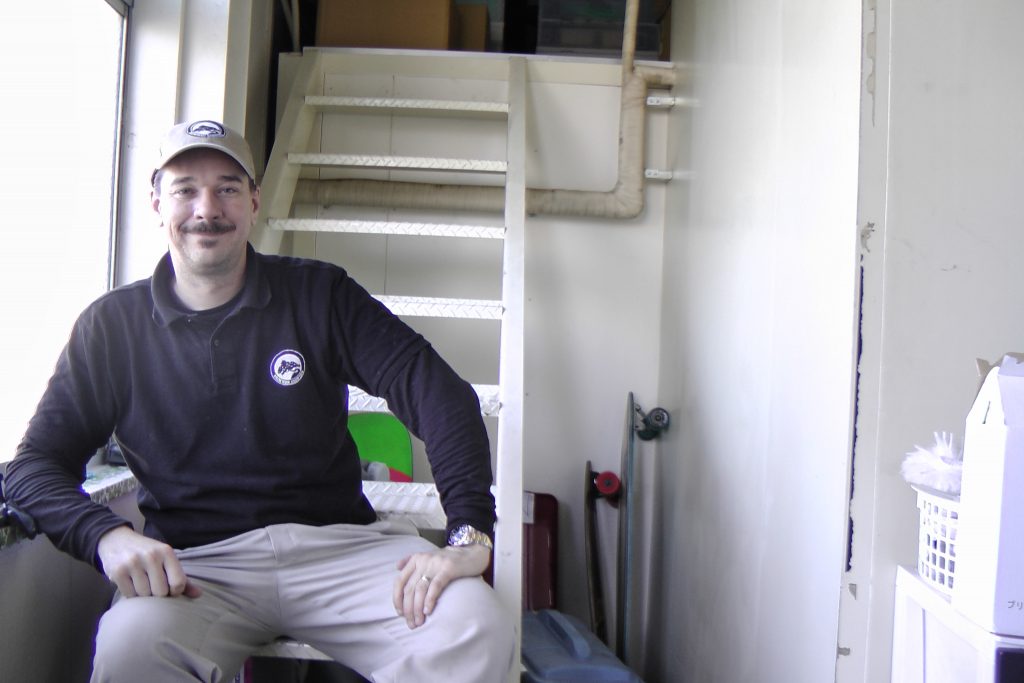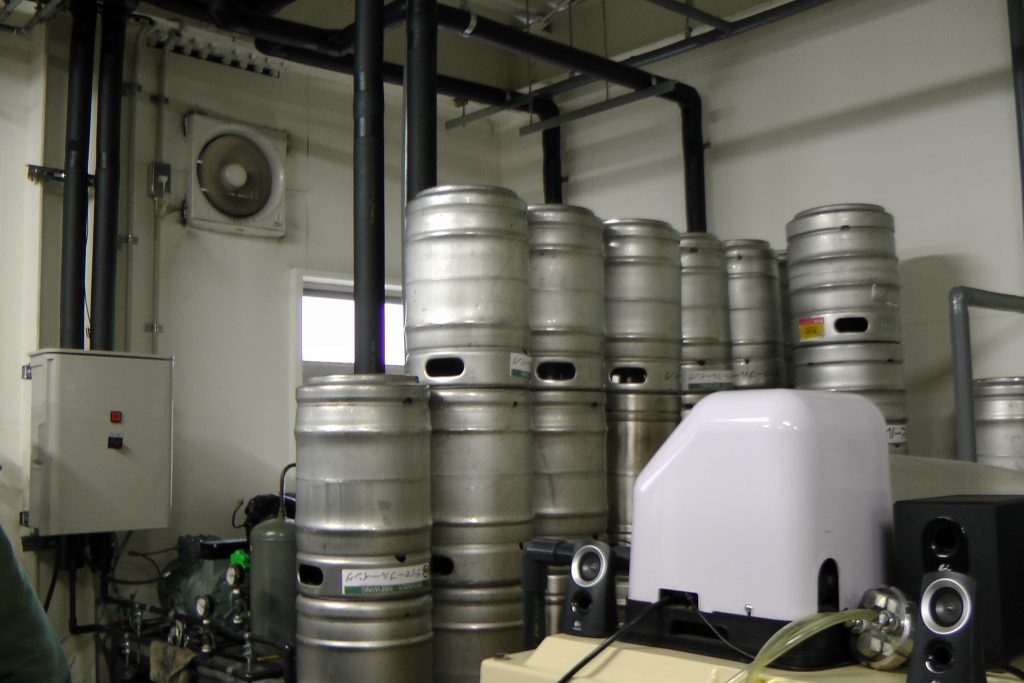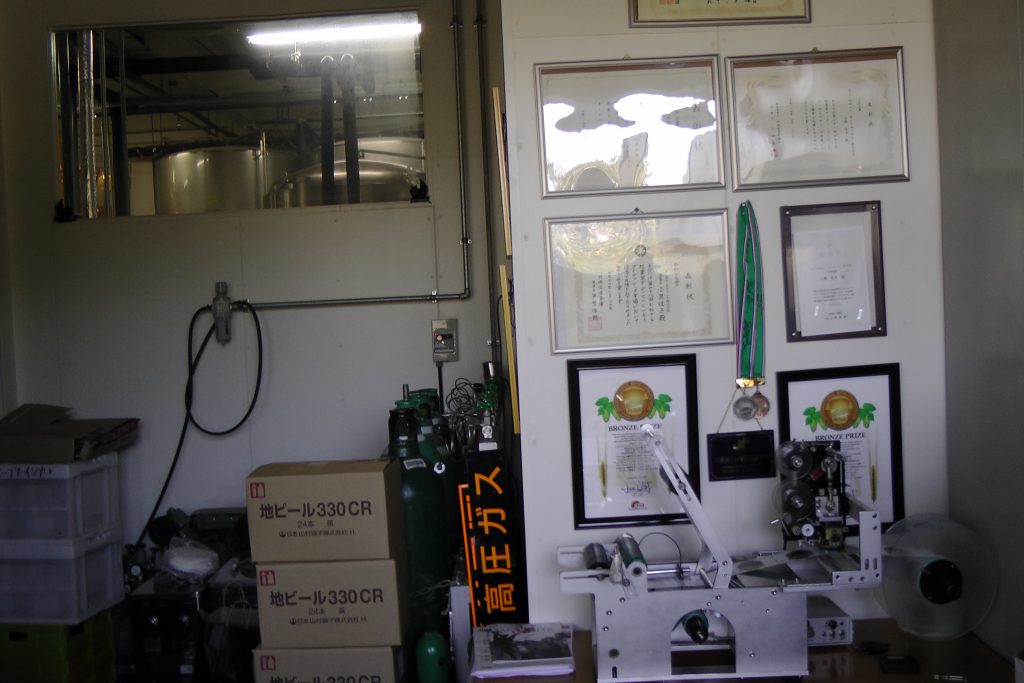BeerTengoku spent a brisk November morning getting under the feet of the busy folks at Brimmer Brewing out in Kuji, Kawasaki City.
 Kuji is not exactly a bucolic paradise. Served by a single tiny station, the primary industry appears to be mainly garbage-centric. As we walked along the trickle of a river towards Brimmer Brewing on this chilly morning, we passed numerous waste disposal, recycling and processing plants. Were we going the right way? I was in charge of directions, after all, and the last time my navigation skills were required we were literally tramping through the underbrush after an hour.
Kuji is not exactly a bucolic paradise. Served by a single tiny station, the primary industry appears to be mainly garbage-centric. As we walked along the trickle of a river towards Brimmer Brewing on this chilly morning, we passed numerous waste disposal, recycling and processing plants. Were we going the right way? I was in charge of directions, after all, and the last time my navigation skills were required we were literally tramping through the underbrush after an hour.
After 15 minutes of factory, truck, factory, machinery, the wind changed and we knew we were close: the unmistakable scent of malted grains hit us. Show yourself, brewery! A few more steps and there’s the Brimmer Brewing banner billowing in the breeze; the only other indication in an otherwise nondescript building that we were in the right place.
Brimmer Brewing are working flat-out to meet demand. There’s not an inch of wasted space in the brewery, and every minute of the day is occupied. Yoshiko Brimmer is the first person we meet, and she lets Scott know we’ve arrived. Scott Brimmer greets us – he seems to have grown a moustache since the last time we met him, at the Oofuna Beer Festival – then ducks out of sight into the brewing area. It’s 10 in the morning and he’s already busy at the mash tun. We also note that in the first two minutes in the brewery we’ve already met two-thirds of the staff.
We take in our surroundings. The waiting area is a table with a bell and four sample bottles. It’s next to the freezer, which is next to the label printer, above which are numerous entrepreneurship awards won by Yoshiko. She handles the business side, while Scott and assistant brewer Chris Macomber make the beer. Around the corner, surrounded by sacks of European grain, is the grain mill. It’s snug between the brewery proper and the admin office, where the Brimmers’ young son plays a match-three game on the laptop. A metal staircase leads on top of the office, where boxes take up most of the space. A huge longboard-type skateboard with neon green wheels is stashed behind it, and just as we are wondering who the longboarder is, Chris arrives.
He’s wearing several layers of clothes and, like Scott, is sporting a moustache. It clicks with me that they’re participating in Movember. He looks kind of tired, though we don’t know if it’s from the time of day, the work schedule, or a hangover. We make our introductions and he takes us back into the brewery.
Scott is stirring the mash tun with a wooden paddle as we enter. There’s a lauter tun as well, and a brass tank. The brass is just for show, though – it’s a regular insulated tank on the inside. They’ve been so busy they haven’t had a chance to polish it, but it still looks impressive. The noise is immense, due to everything being in such close quarters. Baird’s Shuzenji plant, the last brewery I visited, is as quiet as a crypt compared to Brimmer. I give up on trying to record any audio.
As Scott works, Chris takes us through the brewing process. They brew for two to four days, before maturing the beer and sending it to the tanks to sit. After the yeast has settled, the beer is siphoned into kegs and bottles. Brimmer mainly trades in kegs; they have three regular taps at Goodbeer Faucets. Scott estimates it’s 80% kegs to 20% bottles. Perhaps the reason for this, he would explain later, is their current bottling method. They still bottle by hand using a bottle capper, which limits the shelf life to three months. Supermarkets usually require at least six months, and exporting beers overseas is difficult because unexpected delays could mean the beer arrives past its expiry date. The bottles are available in the nearby Marui department store, though, and BeerTengoku has had no trouble picking up bottles online.
We head back out to the waiting area and sit down for a chat with Chris. He’s from Portland, where craft beer has a 40% market share, so coming to Japan he was somewhat disappointed (to put it lightly) at the complete lack of choice in convenience stores and supermarkets. Like many brewers, he has a background in home brewing, but unlike some others he still brews at home as well as it being his day job. It’s good to hear.
His favourite beer that he’s made at home is a black IPA (based on what he said, I decided to try a black IPA at Mokichi a week later, and loved it). He imports special ingredients to try in his brews, such as vanilla beans and oak chips – he advises against my idea of using barbecue wood chips as a substitute – and is currently really into barrel conditioning. Who isn’t, eh?
Chris was living in the Kuji area when he met Scott in a bar and Jedi-mind-tricked him into giving him a job. He had been working for less than a year when we spoke, and had yet to brew a batch alone.
Our conversation is interrupted by a delivery of kegs which Chris takes. I can’t stress how busy these guys are. Scott emerges from the back and Chris goes to take over. Scott flops onto the metal staircase by the longboard and composes himself – then has to immediately get back up again to take a delivery of hops. Then he can sit down again. For a bit.
Last time we saw Scott he was un-moustachioed and in the middle of festival season, a traditionally manic time that can make or break a year. For Scott, it was great to see new faces and catch up with old ones. Production is stepped up around February to March to meet the festival demands.
Speaking of production, we ask Scott what his plans for the future are. At the moment, the team is just about meeting demand working at full capacity. With regards to expansion, Scott has his eyes on the property to the rear of the brewery – he has the tanks, but currently no space for them.
More space would mean the ability to brew extra types of beer, of course. They presently only have room for three regular and one special beer. Scott says he’s a last-minute, seat-of-the-pants kind of guy when it comes to deciding the special fourth beer- “If I plan too far in advance it takes the fun out of it”, he explains.
There’s a lot of creativity waiting to get out at Brimmer Brewing – one of last year’s specials was a California Common, which apparently went through half a dozen iterations – but at the moment it seems like they’re being restricted by both the small space they have to work in, and the beer license they have. What? Yes, you read that right. Brimmer currently have a beer license, but they want a happoshu license as well.
The happoshu license may be a thorn in the side of places such as Campion Ales, whose aim it is to make traditional beer. But it gives breweries the flexibility to experiment with their recipes and add extra ingredients, like the aforementioned vanilla beans. Without it, breweries can’t even dry hop their beer – something which Sierra Nevada, Brimmer’s former employer, was famous for.
Having the license would also allow Brimmer Brewing to pursue a special project- Scott says that he would love to make an ale using Kawasaki pears. They have been engaged in talks with the Chamber of Commerce regarding a collaboration with local farmers to do this. Scott wants to connect with the local Kawasaki market more than preaching to the current craft beer choir, and to get his beer in places that wouldn’t necessarily carry craft beer. He wants a local following in Kawasaki, and enjoys the reaction when people try his beer and then find out “this was made in Kawasaki?!”.
We thank Scott, Yoshiko and Chris for their time and head back to the station. Sure, Kawasaki isn’t famous for its rolling meadows and lush vegetation, and probably won’t win any architectural awards any time soon. It’s an unlikely place to start a brewery. I think Brimmer knows this. I think he wants to use the momentum of that subverted expectation to, in turn, show that a Kawasaki business can produce great beer. Scott Brimmer is proud to be part of the city and is making beer that Kawasaki can be proud of.
We never did find out who the longboard belonged to. I’d like to think it’s Scott.

